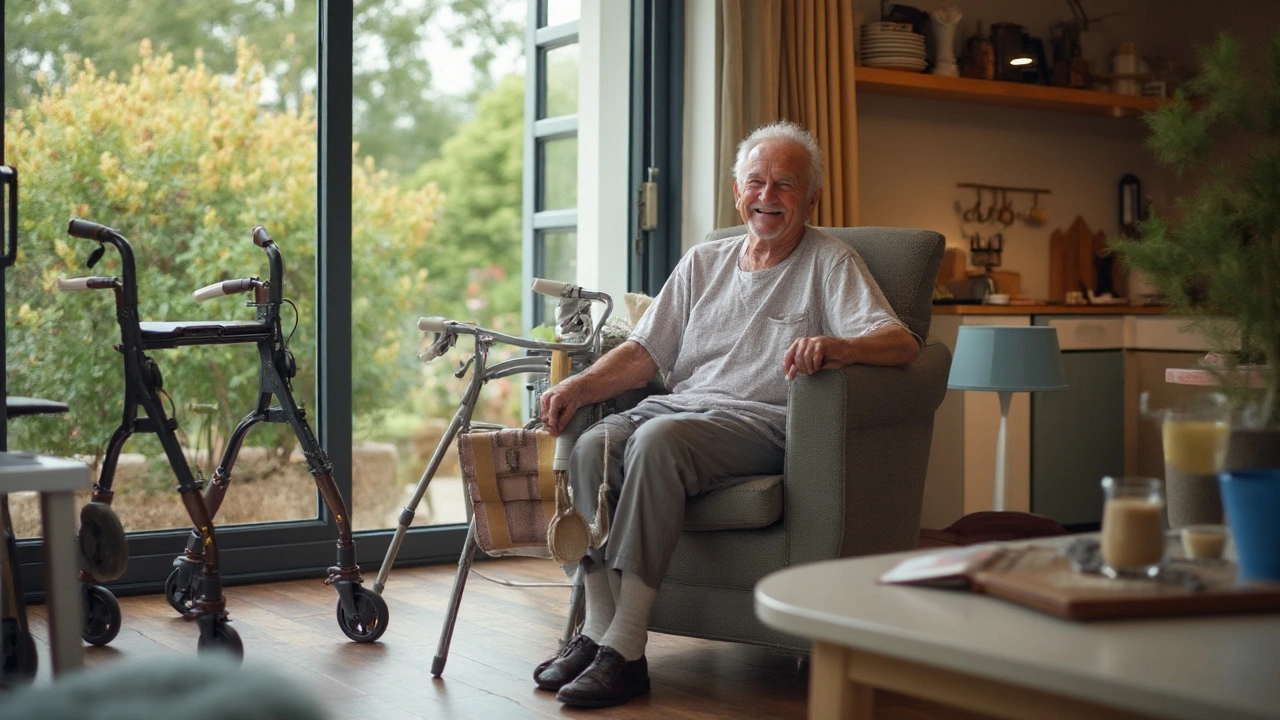Home healthcare Australia: how to get care, meds and telehealth at home
You can get real medical help at home in Australia — nurses, physiotherapists, GP video consults and medicine delivery. This guide tells you what to check, where to look, and how to avoid common traps when arranging care at home.
If you need ongoing support, check if you fit My Aged Care (for older Australians) or NDIS (for disability). Private Home Care Packages also exist. For simple needs — a one-off nursing visit or a GP consult — many private providers and clinics deliver fast, paid services.
Online pharmacies and medication delivery are popular, especially if mobility or isolation is an issue. Use only pharmacies registered in Australia. Look for an Australian address, a real phone number, and a pharmacist contact. Ask if the pharmacy dispenses PBS-subsidised meds — that keeps costs down. Beware sites that sell without a valid prescription or pressure you to buy multiple brands.
Telehealth and video GP visits
Telehealth is now a normal part of Australian care. Most GPs offer video or phone consults that can be bulk-billed under Medicare for eligible patients. Telehealth works well for repeat prescriptions, minor illnesses, mental health check-ins and follow-ups after hospital discharge. Have a clear list of symptoms, current meds, and any home devices (blood pressure cuff, glucose reader) to share results during the consult.
Not every condition is suited to video care. If you have sudden chest pain, severe breathlessness, major bleeding or a suspected stroke, call 000 or go to the nearest emergency department.
Practical tips to find safe providers and save money
1) Verify credentials — ask for provider registration (AHPRA for clinicians). 2) Check licencing — pharmacies should follow the Pharmacy Board and TGA rules. 3) Compare costs — Home Care Packages may cover some services; PBS covers many common meds. 4) Ask about written care plans and consent — you should get clear instructions, fees and who to call after hours. 5) Read recent reviews and ask for references if you hire private carers.
If you use online reviews, pick sources that show verified patients. For cheaper meds, check whether switching brands affects your treatment and ask your prescriber or pharmacist first. If a website promises prescription meds without a proper consult or with suspiciously low prices, don’t risk it.
Starting care at home usually begins with a phone call: contact My Aged Care, your GP, or local allied health services. Prepare a short list of needs — medication delivery, wound care, mobility help — and ask about wait times, costs and funding options. Keep a simple folder with prescriptions, medicare details and emergency contacts.
Home care in Australia can be safe, affordable and convenient when you verify credentials, use Medicare and PBS where possible, and pick trusted telehealth and online pharmacy services. Small checks up front save time, money and stress later on.
Tizacare: Honest Guide to Home Healthcare Services in Australia
Discover everything about Tizacare—your Australian guide for home healthcare supplies, mobility aids, and personal care. Learn tips, real product details, and local insights.

